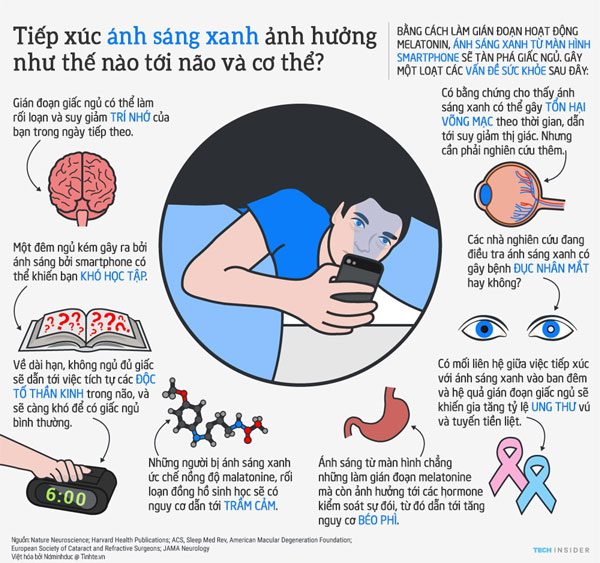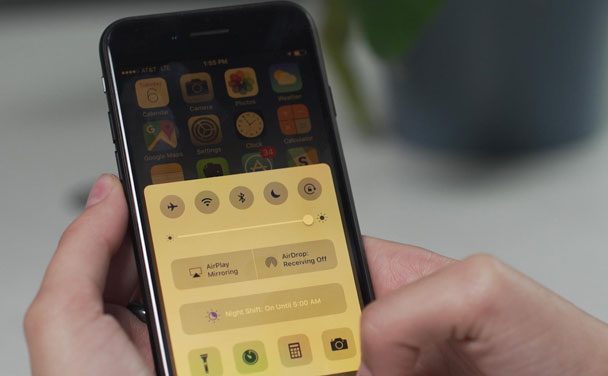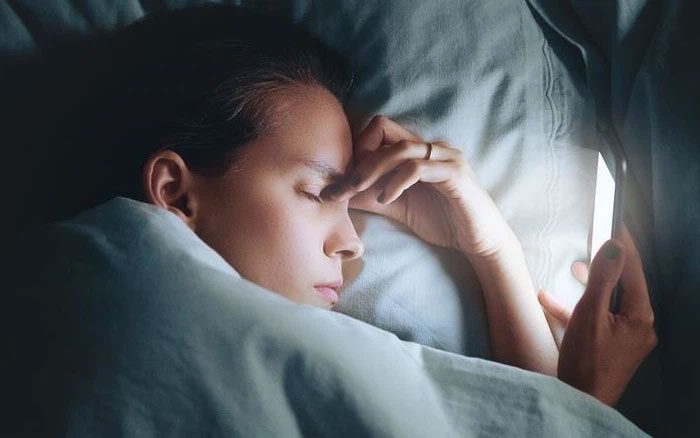Most of us always keep our phones close by, even when preparing for bed, and it’s likely that the phone is the first thing we reach for in the morning. However, it seems that having your phone near you while sleeping might not be a good idea, at least from a scientific perspective.
It Makes It Harder for You to Sleep

A 2011 study found that 9 out of 10 Americans use technology devices before bedtime. The term “technology devices” refers to mobile phones, TVs, computers, laptops, tablets, gaming consoles, etc. Among all the technology devices listed, mobile phones are the most popular choice for individuals under 30.
When you use technology, especially smartphones, right before bed, it means you are not giving your body and brain enough time to relax. Furthermore, you can easily get caught up in a game you’re playing, something you’re curious about on Facebook, or simply out of habit, you might pick up your phone to scroll while trying to close your eyes, but end up unable to sleep. Ironically, this act of picking up your phone to browse makes it harder for you to fall asleep.
The best way to limit this is to keep your phone away from you when you go to sleep.
Effects on Sleep Cycles

By not using your phone before bed, you are also reducing exposure to blue light. Exposure to blue light too close to bedtime has been shown to disrupt your normal circadian rhythm. Essentially, blue light interferes with your body’s internal clock by delaying the natural release of melatonin before you fall asleep.
Our circadian rhythm is closely linked to sunrise and sunset each day. Therefore, naturally, throughout the day, our bodies know when to wake up and when to go to sleep.
Smartphones have impacted the circadian rhythms of many people, largely due to blue light. Exposure to blue light right before bed or when your phone lights up with notifications throughout the night can negatively affect your sleep cycle. It’s very likely that you will wake up feeling fatigued or sleep-deprived, even if you’ve gotten a full 8 hours of sleep.
The best way to eliminate the effects of blue light is to avoid using your phone a few hours before bedtime. That said, it’s clearly not easy to do this. This is why built-in blue light filters on most electronic devices today can be a solution.
Low Radiation Exposure Risks
Many people claim that mobile phones cause cancer. Currently, there is not enough solid scientific evidence to support this claim.
A study by the National Toxicology Program in 1999 exposed rats to high-frequency radiofrequency radiation from mobile phones. They found evidence of tumors, both benign and malignant, in the hearts, brains, and adrenal glands of the test rats.
However, the FDA states: “Nearly 30 years of scientific evidence has not linked exposure to radiofrequency energy from mobile phone use with health problems, such as cancer.” Due to conflicting scientific studies and information available online, it’s difficult to ascertain the risks that smartphones pose to health.
Your mobile phone emits a small amount of non-ionizing radiation, but only when it is in use. The only known side effect of this radiation is heat. Your phone gets warm when used for a while.
Effects on Vision
After a long day of tiring work, your eyes have had to adjust a lot, and at night, when your eyes need rest, they are forced to strain to continue using your phone. Moreover, the blue light from the phone screen can reflect back and stimulate the retina, which, if prolonged, can lead to numerous adverse effects on eye health.
Additionally, lying on your side while using your phone can cause misalignment of your eyes. When lying sideways, the focus of each eye on the screen differs, causing the two eyes to no longer be aligned, which is not only aesthetically unpleasing but also affects health.
Causing Skin Conditions
It may seem that there is no connection between using a phone and skin conditions, but you are mistaken. The phone is seen as an inseparable item for everyone, and it is used very frequently, so the surface of the phone harbors a large number of bacteria. You may not know that the amount of bacteria on your phone screen is 20 times greater than that on a toilet seat. Therefore, touching your phone and then your face can inadvertently cause red spots like allergies.

The amount of bacteria on your phone screen is 20 times greater than that on a toilet seat.
Affecting the Skeletal System
Bending your head while using your phone before bed for an extended period puts a lot of strain on your neck, which can lead to neck pain. Additionally, holding your phone with one hand can also cause fatigue and numbness in your hands, which over time can lead to cramping.
Memory Decline
According to some studies, exposure to radiation for just 2 minutes can impair the brain’s defensive capabilities, increasing the risk of neurological diseases and severe memory decline. When sleeping, you should put your phone on airplane mode or keep it away from your sleeping area.
Causing Depression and Anxiety
Some studies suggest that most people who experience anxiety and fatigue relate to using their phones before bed and excessive use. This is due to the radiation emitted from the phone screen stimulating the brain’s nerves, causing feelings of stress and fatigue. Moreover, information and relationships on social media can also cause us harm and feelings of isolation.
If you are concerned about exposure to radiation, here are some things you can do:
Keep your phone away from you while you sleep. If you receive any calls or notifications throughout the night that increase the radiofrequency radiation emitted from the phone, keeping it at a sufficient distance will minimize your exposure.
If you want to listen to music or podcasts while sleeping, try using headphones or Bluetooth speakers.
If you want to further limit exposure to mobile phone radiation, avoid pressing your ear against the phone when making calls and store your mobile phone in a place other than your pocket, such as in a backpack.
Here’s what you can try right now
Try placing your phone in another room while you sleep. Or, if you need to keep your phone in the bedroom as an alarm clock, make sure it is at least 1 meter away from you. In addition to avoiding the issues mentioned above, there is another benefit to this habit: if your phone is not right next to you in the morning, you won’t be able to easily turn off the alarm.
You may not notice much difference when placing your phone a little further away from you while you sleep. However, it will help improve your ability to fall asleep, sleep deeply, and have a restful night.





















































